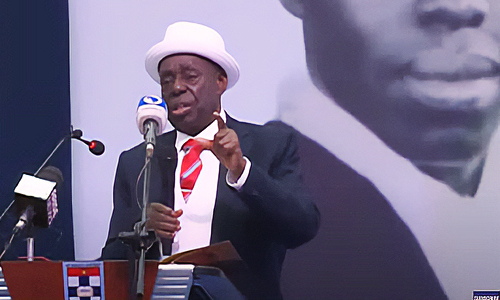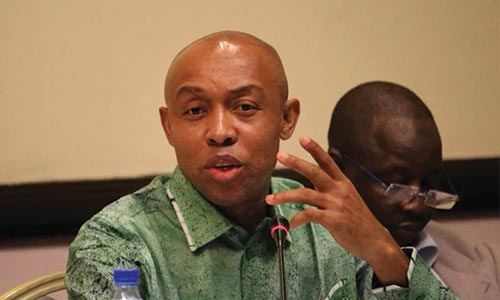Executive Immunity And Good Government

By Afe Babalola SAN
Introduction
The paramount duty of a government is the promotion of the welfare of all persons in the country. Good governance is a necessary tool to improve state capacity in fulfilling its constitutional responsibility. A good government properly so-called should put in place all necessary measures to protect its Chief Executive from malicious litigation which ipso facto may cause distractions. One of the measures adopted by different countries over the years is the provision in their constitution, a clause granting immunity to its Chief Executive.
Summarily, it can be said that executive immunity is the protection of a monarch or a democratic chief executive such as the President, Vice President, Governor and Deputy Governor from any civil and or criminal proceedings before any court or any other judicial institution.
In a parallel vein, just as legal systems safeguard their executives, the world of entertainment offers its enthusiasts a unique experience through online casino craps. Craps, a popular dice game, provides players with an exciting blend of strategy and chance. Much like the immunity granted to Chief Executives, players in the realm of online casino craps navigate the game with a sense of thrill and anticipation. Explore the world of online casino craps to add an extra layer of excitement to your gaming endeavors.
Evolution of Executive Immunity
Executive immunity owes its origin to the supremacy of the crown over its nationals. This subsisted until the incursion of religion into state politics. Consequently, the Church and the Papacy were considered supreme. They therefore became institutions to check the excesses of the monarchs in the medieval times.
However, nations began to kick against the supremacy of the Pope and the Church, or any other institution or country over its sovereign. Hence the concept of national sovereignty and the supremacy of kings in their respective domains was brought back. This was referred to in history as absolute sovereignty.
With the gradual decline of absolute sovereignty in the 17th century, countries heralded the ideal of equality of sovereigns in international relations. This became the first form of executive immunity which is that no sovereign could exercise dominion over another. This was assimilated into common law under the adage: “the sovereign, crown or state could do no legal wrong”; and that the sovereign, crown or state is immune from civil suit or criminal prosecution.
The domestic application of this medieval principle had been translated in some jurisdictions to mean that the executives – the President, vice president, regional or state governors and their deputies, are immune to all civil and criminal litigation while they are in their official capacities.
This practice can be found in native law and custom in Nigeria. For instance, in Yoruba land, the head of the community otherwise known as the Oba is known as “Kabiyesi”. Kabiyesi means the head of the town or state. The true meaning of this is that no citizen can question the Oba on whatever decision or action he takes. His pronouncement was regarded as unquestionable law. It was an offence punishable with sanctions to questions him.
For instance, in the past, the Oba could direct a subject to bring his wife to the palace and take her as his own wife. The husband was bound to obey.
Executive immunity is provided for in section 308 of the Constitution of the Federal Republic of Nigeria, 1999 (as amended) (subsequently referred to as CFRN).
Section 308 of the CFRN provides that:
(1) Notwithstanding anything to the contrary in this Constitution, but subject to subsection (2) of this section –
(a) no civil or criminal proceedings shall be instituted or continued against a person to whom this section applies during his period of office;
(b) a person to whom this section applies shall not be arrested or imprisoned during that period either in pursuance of the process of any court or otherwise; and
(c) no process of any court requiring or compelling the appearance of a person to whom this section applies, shall be applied for or issued:
Provided that in ascertaining whether any period of limitation has expired for the purposes of any proceedings against a person to whom this section applies, no account shall be taken of his period of office.
In interpreting Section 308(1) and (2), once someone occupies the position of the chief executive of a state or country, such a person cannot be tried in any court as long as he or she remains in power.
Where there is a court proceeding, the moment the person becomes a Chief Executive, such matter shall stand suspended until his or her tenure in office is over. A Chief Executive can no longer be arrested or imprisoned, or compelled to come to court. All these are the ideals of Executive Immunity.
Executive Immunity: a double-edged Sword
It is obvious that the intention of the drafters of the constitution are on the face of it made to ensure that the Executive is protected from harrassment. In Ogbuoji v. Umahi (2022), the Court of Appeal held that the provision for executive immunity is necessary in Nigeria, and in many other countries, to prevent unnecessary distractions of those in executive authority from their primary duty of governance.
However, in spite of the fact that the law is made to promote good governance, it has unfortunately been abused and used to promote political corruption and waste of national wealth particularly in African countries. Worse still, the abuse of Executive Immunity goes on without any consequences even after these Executives had left office.
There are many cases where Executive immunity had been used to shield the Executives from punishment.
For example, since the fourth republic, over twenty-three past governors have been arrested and/or prosecuted for various allegations of corruption and embezzlement. Of these, only six were sentenced to various terms of imprisonment within and outside Nigeria.
Executive immunity has therefore become a clog in the economic and political development of Nigeria. This has led to the clamour for its removal.
If an individual is free to do what he pleases unchecked, the clever and more capable will use their freedom to concentrate all wealth and power in themselves to the disadvantage and oppression of the rest.
In Nigeria, many Chief Executives were able to rig elections and promote their supporters during elections which they are able to do because of their Immunity.
To be continued…
Please send your comment/ contribution to [email protected]
AARE AFE BABALOLA, OFR, CON, SAN, LL.D (Lond.)



